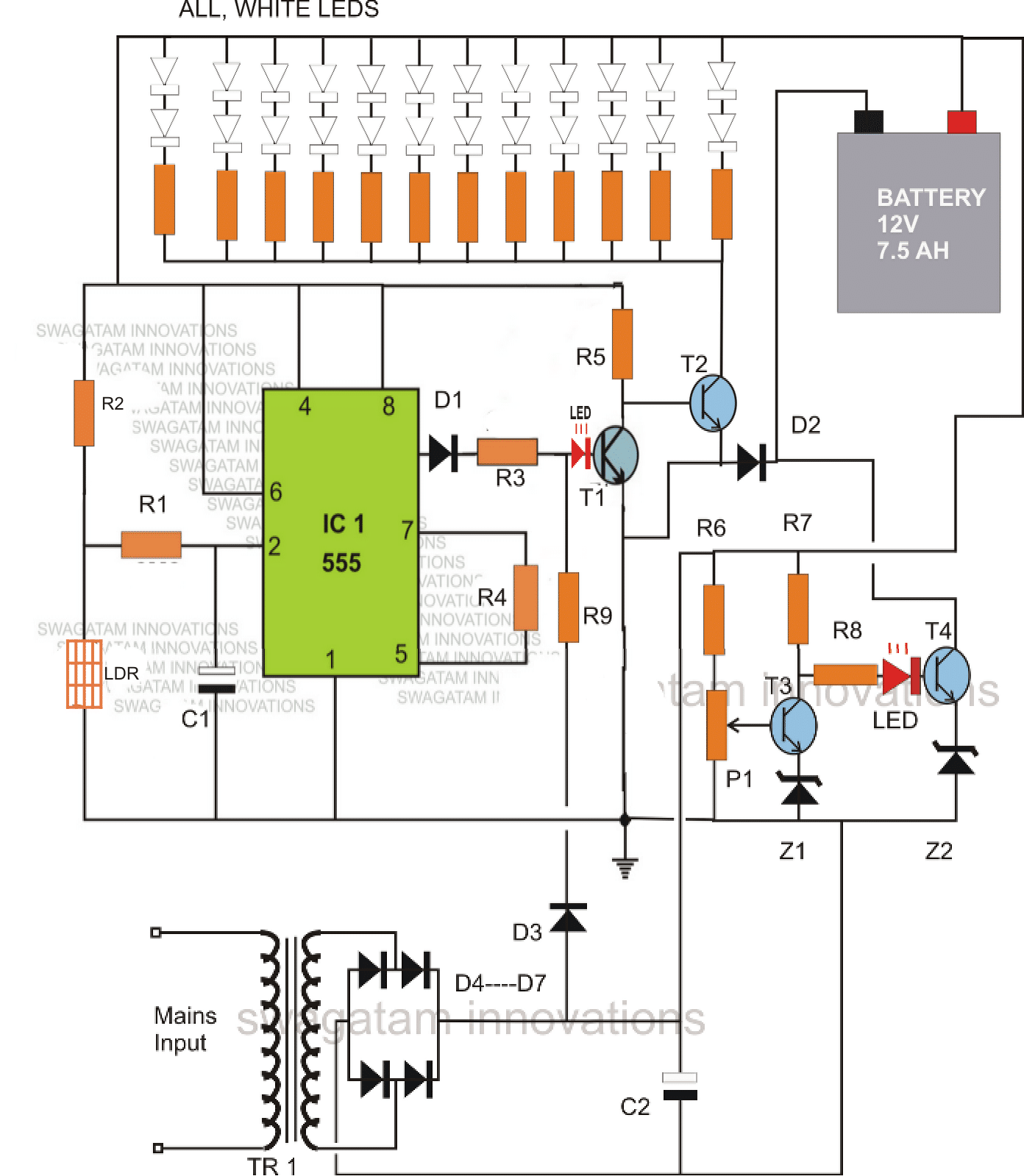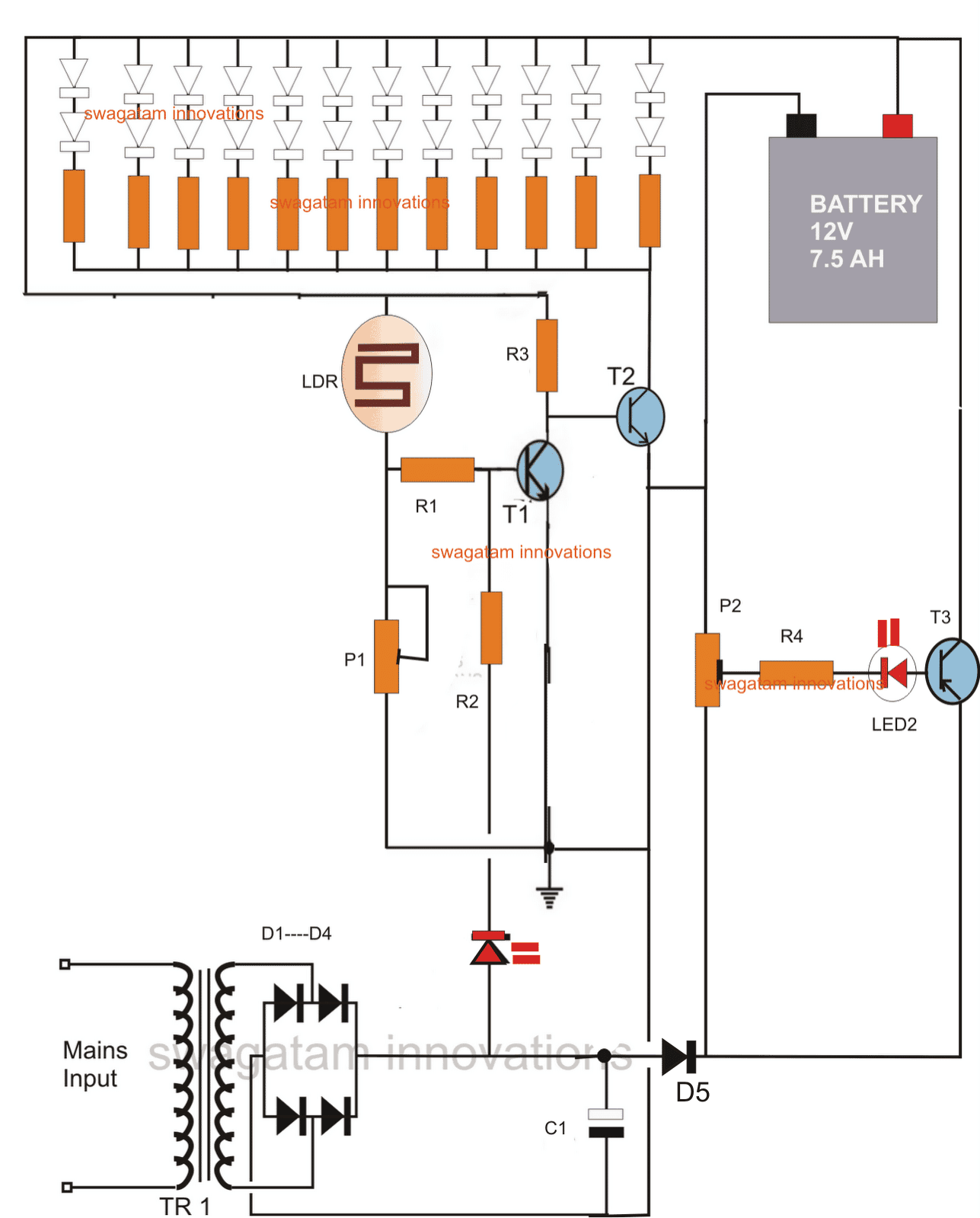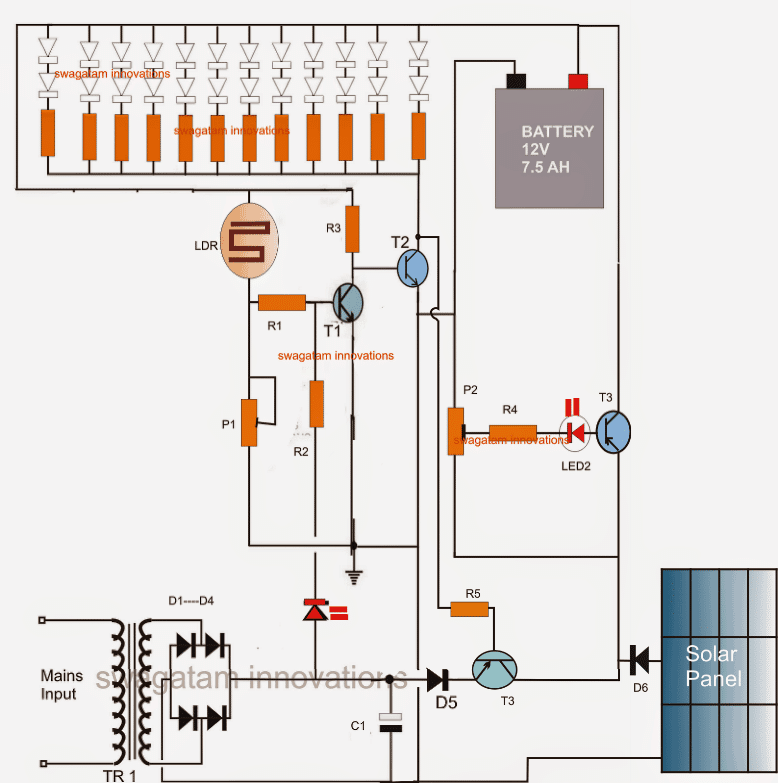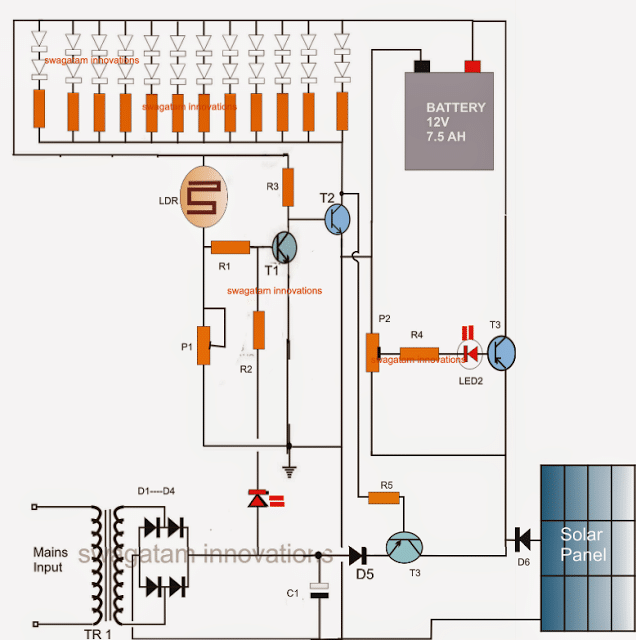The following LED emergency light with battery over charge protection feature circuit was designed by me in response to the request sent by PP.
Main Features
In this article I have explained an LED emergency light circuit with advanced features such as,
- over charge battery cut off,
- day time auto-disable,
- and need less to say that the circuit switches ON the LEDs automatically when AC mains fails and reverts to charging mode when power is restored.
- The good thing about this circuit is that it incorporates ordinary, cheap components which can be easily procured from the local market.
Circuit Operation
Let's try to understand the circuit functioning with the help of the following points:
IC1 which is our very own IC555 has been set as a comparator. During day time, the light over LDR keeps the LDR resistance low such that the potential at pin #2 of the IC is kept well over 1/3Vcc. This situation ensures that the output of the IC at pin #3 stays at logic high.
The logic high at pin#3 of the IC keeps T1 switched ON, which consequently keeps T2 switched OFF.
With T2 switched OFF, the LED array remains inhibited from the ground connection and therefore the whole white LED array also stays shut off.
Another factor that keeps T1 switched ON and T2 switched OFF, is the voltage from the transformer power supply stage.
This function is implemented via the resistor R9. This also means that as long as mains AC is available, T2 is restricted from conducting and therefore the LEDs cannot light up.
Now suppose the mains power to the transformer fails, and assume that this happens during night or complete darkness, pin#3 of IC555 reverts to zero and also there's no voltage from the power supply, means T1 has absolutely no base bias and therefore has to switch OFF.
This instantly prompts T2 to switch ON and consequently the entire LED array also switches ON, providing the required emergency illumination to the surrounding.
MAKE SURE THAT THE LIGHT FROM THE LED DOES NOT FALL OVER THE LDR, WHICH MIGHT TRIGGER A RAPID UNDESIRABLE SWITCHING OF THE LEDS.
The battery charging section consists of T3, T4 and the associated parts. P1 is set such that it switches ON T3 when the battery voltage reaches just above 14 volts.
The moment this happens, T4 switches OFF, cutting of the negative supply to the battery and restricting any further charging of the battery.
Diode D2 ensures that the battery receives the negative supply during the charging process only through T4 and also provides a normal negative path to to T2 and the LED array when they conduct.
The left side LED indicates, mains power ON or presence of day light.
The LED at the right side indicates, battery is charging.

Parts List
- R1 = 2M2
- R2 = 1M
- R3, R4, R5, R9, R6, R7, R8 = 4K7
- ALL LED RESISTORS = 330 OHMS
- D1, D2, D3 = 1N4007
- D4----D7 = 1N5402
- C1 = 1000uF/25V
- C2 = 1uF/25V
- T1, T3 = BC547
- T4, T2 = BD139
- Z1, Z2 = 3V/400mW
- P1 = 10K PRESET
- IC1 = IC 555
- TRANSFORMER = 12V, CURRENT = 1/10 OF BATTERY AH
- LEDS = WHITE 5mm, OR AS PER CHOICE.
- BATTERY = 12V, AH = AS PER LED POWER AND BACK-UP REQUIREMENTS.
Using a Single PNP BJT
The above circuit can be much simplified by eliminating the IC555, and by using just a single PNP transistor instead of two NPN in the battery auto-battery cut of section.

P1 is used for adjusting the ambient light threshold at which the LEDs stop illuminating.
P2 is set such that at 14.6V (across the battery terminals) the base LED becomes very dim, hardly visible, and at 12.5V it's brightly lit.
Adding a Solar Panel
The above circuit can be also coupled with a solar panel for getting an automatic charging facility from both the sources that is from the panel during day time and from mains after the sun sets.

Parts List
R1,R2,R3, R4, R5 = 1K
P1 = 470K
P2 = 1K
C1 = 1000uF/25V
D1---D5 = 1N4007
T1 = BC547
T2 = 8050
T3 = TIP127
ALL LED RESISTORS = 330 OHMS
LEDS = WHITE, 5MM
LDR = ANY STANDARD TYPE
TRANSFORMER = 0-12/1AMP
